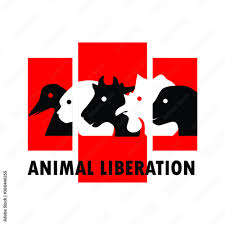43
Do carnists understand conservation of energy?
(hexbear.net)
:vegan-liberation:

Welcome to /c/vegan and congratulations on your first steps toward overcoming liberalism and ascending to true leftist moral superiority.
Rules
No plant-based diet bullshit or promotion of plant-based capitalism. Veganism isn't about you, it's about historical materialist anti-speciesism, anti-racist animalization, and animal liberation. Ethical vegans only.No omni apologists or carnists. Babystepping is for libs, and we're not here to pat you on the back. Good faith questions and debate about how to fight for animal liberation are allowed.No advocating violence to any species for any reason. If you think this is negotiable GTFO. This includes but is not limited to animal testing, slaughter, and mass euthanasia. Anything that promotes speciesism or the commodification of animals will be removed.Use Content Warnings and NSFW tags for triggering content.
Especially if a comrade requests it.Questions about diet belong in c/food. It's also a great place to share recipes.In all sections of the site, you must follow the Hexbear.net Code of Conduct.Resources
Animal liberation and direct action
Read theory, libs
Vegan 101 & FAQs
If you have any great resources or theory you think belong in this sidebar, please message one of the comm's mods
Take B12. :vegan-edge:
There's an element of truth here, in that parts of the world have a system where farm animals eat stuff humans can't, such as wild grass, kitchen waste and straw. But modern 'factory farms' do use insane amounts of growth su0lements and medicines, which are just as bad.
The carbon, nitrogen, etc. contained in that grass, waste, and straw should be buried in/returned to the soil to grow plants instead of being farted into our atmosphere. Assuming the land in question is arable in the first place (which I think is valid if it's producing enough plant matter for grazing to be viable), if managed at all would produce more calories of human-compatible nutrition per calorie invested than harvesting of grazing animals on said land would.
There's land that isn't good enough to grow crops, but is good enough for wild plants to grow. You can, as you said, 'manage' it - give enough fertiliser and water to make it suitable for agriculture. But that is often unaffordable for the people living in such places, so using animals to gather and concentrate the available nutrients is the best option available to them.
That's an orthogonal injustice though, no? Collectively, our species massively overproduce food, so I would think the fact that there is a prior reason to be trying to cultivate land like this, which ought to be managed for native flora/fauna is a separate and solvable large scale land allocation problem, the solution to which frees whatever livestock use the argument excuses.
The economist Amartya Sen, who studied famines in South Asia and Africa said that 'starvation is the characteristic of some people not having enough food to eat. It is not the characteristic of there being not enough food to eat." Producing more food than we need means nothing if it does not reach everyone.
I would say it is more of a food-allocation problem. Land redistribution is a great thing, and has worked in the past. But natural disasters and crop failures can occur in regions, and larger farms can benefit from long-term planning and more scientific management. So the better solution, in an ideal world, would be to focus on guaranteeing food rather than land.
Solving food security will of course greatly reduce this problem, although personally I am worried that food availability will get worse in the coming years and decades due to the various ways in which we are damaging the environment.